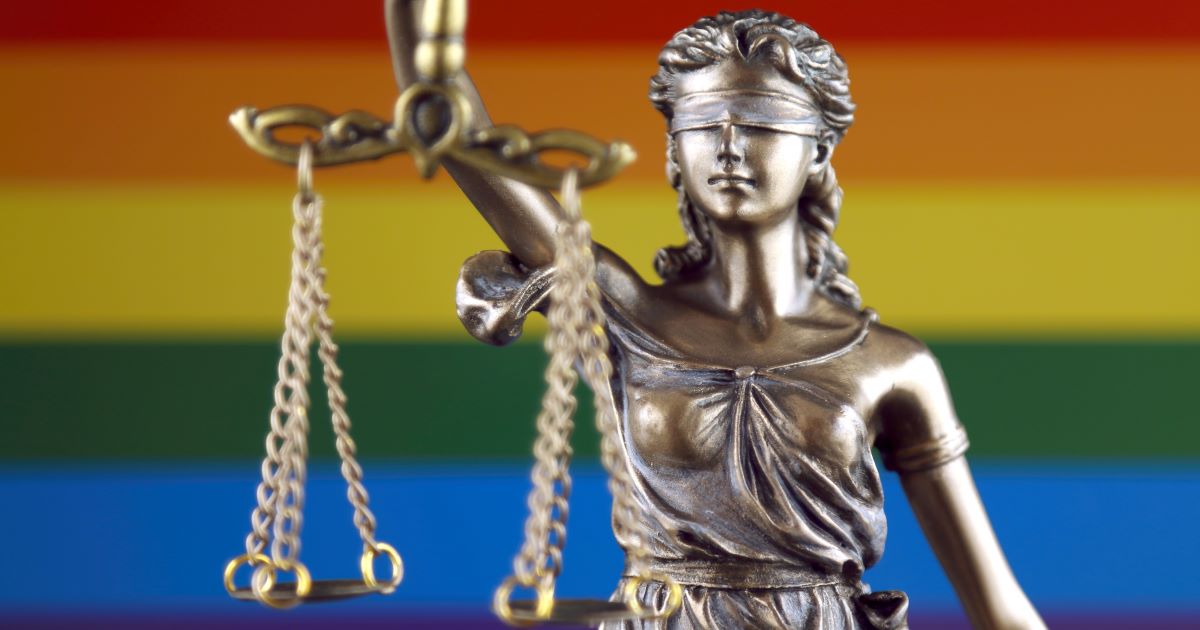


Many, even many Christians, have rejoiced at the ruling in Bostock v. Clayton County, seeing it as nothing more than basic fairness. In this, they are blissfully unaware of what will come next, because, in our nation’s ongoing culture wars, there’s always a “next.”
It was just a few short years ago that the idea of gay marriage was touted “marriage equality,” something that allowed our gay neighbors the same rights and joys as the rest of us. Why not? Who was against love? Only the most paranoid could think that anything more could come of it. A few years later and what do we see? The Supreme Court of the United States just ruled, in effect, that it is legally discriminatory to treat a biological man as a man if he says he’s a woman.
John Stonestreet talked with John Bursch, the lawyer with the Alliance Defending Freedom who argued this pivotal case in Washington and he offers in observations and insights about what this means for American society and for the task of the Church.
Below is an edited excerpt of their conversation, or you can listen to the entire presentation.
We were told that the Obergefell case redefining marriage wasn’t going to affect anybody. Talk to Baronelle Stutzman, talk to Chief Cochran, talk to Blaine Adamson and talk to all these folks who have had their livelihoods put at stake in litigation by states and plaintiffs who are trying to punish them for their views on marriage. We can all look back with 2020 hindsight and say that’s not true. Here it’s even more so not true.
Gorsuch says in the opinion, “We’re not deciding today the shower and the restroom question.” But if you’re saying that a biological man is not allowed to use the women’s restroom or the women’s shower, but a biological woman is allowed to use the women’s shower and the man identifies as a woman and now wants to use that shower and you say no, that is discrimination based on sex, on his own reading of the statute, because the man is being treated differently than the woman.
No one would have thought that in 1964. To somehow claim that this doesn’t affect wider issues is just so frustrating. Even he must know that’s not true.
Justice Alito’s dissent went on for more than 100 pages with a pretty large appendix documenting the many, many ways this is going to sweep across federal law and change the way we think about all kinds of things. It’s really inevitable that this is going to have a big impact.
Justice Gorsuch knows that, and we know that because at the very end of the opinion, he holds out to the olive branch to people who still hold a biblical understanding of what it means to be male and female or a biblical understanding of marriage.
He says, “Oh, well, there’s still religious liberty protection out there.” So, as courts go on and implement this, saying that anybody who holds those biblical views is a discriminator, they might be able to defend using religious liberty.
What that does is it sets us up for a culture war in the courts that’s going to last probably the next 15 to 20 years, but we’re going to have to litigate, case by case, every employer, employee, student-athlete, professional athlete, anything having to deal with these issues and determine what Trump says is the right to religious liberty or is it the anti-discrimination provision that you just rewrote? There’s nothing narrow about this.
I’ll give you a reason for optimism and a reason for pessimism on the culture wars.
The reason for optimism is that Title VII is a federal law and so the Religious Freedom Restoration Act applies. That is the same statute that guarantees religious liberty that Hobby Lobby invoked, even though it’s a for-profit company, in the context of the Affordable Care Act.
The U.S. Supreme Court’s gave a 5-4 decision, so there’s no reason to think that they’re going to backtrack on that. They said, “Yes, RFRA applies and it protects Hobby Lobby.” Now that’s so great, that’s the good news.
The bad news, and the reason why Alliance Defending Freedom has opposed the Utah Compromise and similar compromises in other places, is that by moving the ball to a fight over religious liberty, we, as a society, have now said as a matter of law that to hold beliefs about marriage and gender and human sexuality that are consistent with the Bible is discrimination, that it’s hateful and bigoted.
Now, society might give some of those hateful religious people an exception because the Constitution and this RFRA statute tell us that we have to do that. But, when you think about the political and cultural trajectory of this country, how long do you suppose that the religious liberty exception is going to last when everybody thinks that this is a bigoted and evil view?
That gets me to the point of all the work that we have to do. It’s not going to be enough in the next 20 years to simply fight the battle for religious liberty and invoke that statutory defense to invoke free exercise clause.
We need to reeducate the culture as to what the meaning of sex is, what the purpose of human sexuality is, and the importance of embracing all of the gifts that God has given you from your body to your human sexuality, to your orientation, to everything that goes with it, and to live a life that’s aligned with His plan, not with our own personal feelings and what society says is right or feels good.
Until we can win that latter point, we’re just going to see a downward decline and a long-term diminution in religious liberty protection as long as people think that our views are not about love, which they are, but instead are about hate.
Topics
Alliance Defending Freedom
Law
Liberty of Conscience
New Sexual Orthodoxy
Religious Liberty
SCOTUS
Society
The Church














